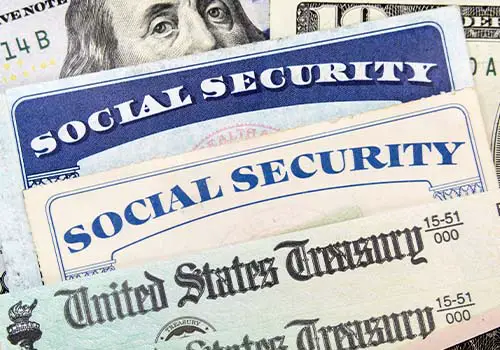When diving into the complexities of social security, many wonder: Does social security verify marriage? For most, the simple thought of bureaucratic involvement in personal affairs might seem overwhelming. Let’s unpack the many details included in this explanation.
Understanding Social Security
Social security serves as a safety net for countless individuals. It provides financial assistance in times of need. But how does marriage play into this?
Marriage is a significant life event that can impact social security benefits in numerous ways. Depending on your marital status, you may be eligible for spousal or survivor benefits and may owe social security penalties.
Verifying Marital Status
For the Social Security Administration (SSA), verifying marital status ensures fairness and accuracy in benefit distribution.
- The Verification Process: It’s no surprise that SSA would take steps to confirm the details. Typically, original or certified documents are needed to prove marital status.
- Documentation Required: This might include marriage certificates, divorce decrees, or death certificates for widowed individuals. Have you ever thought about why they’d ask for such specifics? It’s all about the details.
- Are there exceptions? While the SSA generally demands documentation, there might be rare exceptions. This can be when records are hard to procure due to factors beyond one’s control.
- Common Pitfalls: Common mistakes, like providing unofficial copies or outdated information, can lead to delays. The devil is in the details.
KEY TAKEAWAYS
- The SSA will take steps to verify the marital status of Social Security beneficiaries.
- You will typically be required to provide documentation to support your marriage status, such as marriage certificates, divorce decrees, or death certificates.
- You must provide accurate information to the SSA; submitting inaccurate information can lead to penalties and legal action.
Navigating the Process
With so many steps and potential pitfalls, where does one begin?
- Steps to Verification: From gathering documents to timely submissions, ensuring every box is checked can be daunting. Remember, preparation is key.
- Seeking Additional Help: Sometimes, it’s okay to ask for help. Various agencies and NGOs are equipped to guide individuals through this maze. With just a little research, you can easily find help.
- When to Seek Legal Counsel: Legal advice might be the best route in tricky situations or when disputes arise. Consider seeking aid from an attorney’s office. It’s nice to have a guide.
Must read articles related to Social Security
- Complete guide to the ins and outs of Social Security.
- Does a second wife get Social Security benefits from her new husband?
- Who can receive Social Security and when?
- What is the future of Social Security…will it run out?
- Eight ways to maximize your Social Security benefits.
The Importance of Honesty
Walking the path of honesty isn’t just morally right; it’s practically beneficial, too.
- Consequences of False Claims: Submitting incorrect information can lead to penalties or legal action.
- Avoiding Mistakes: The best way is to double-check, conduct thorough research, and seek guidance when unsure. Remember the age-old saying: “Measure twice, cut once?”
- The Role of Transparency: Being upfront and transparent is wise. It can streamline the process while fostering trust with the SSA.
TIP
Providing official copies of documents with up-to-date information can expedite the verification process.
Benefits of Accurate Verification
Ensuring one’s information is verified correctly benefits the individual and the system as a whole. This information includes names, current addresses, and crucial documentation.
- Ensuring Accurate Benefits: Individuals receive the benefits they rightly deserve when details align. It’s like ensuring every piece of a puzzle fits perfectly.
- Strengthening Trust: Accuracy builds trust. Trust is the foundation of any successful system. Imagine if the majority of the population attempted dishonest claims. The whole system would come crashing down.
- Streamlining Processes: Administrative hurdles can set back the process. Having all your ducks in a row can ensure a streamlined verification.
The Bottom Line
So, does Social Security verify marriage? The answer is a resounding yes (in most cases). It ensures fairness and accuracy and upholds the integrity of the system. While the process may seem tedious, with the right steps and guidance, it’s an easy hurdle to cross. Let’s always remember that accuracy today prevents complications tomorrow.
Frequently Asked Questions
No, your Social Security benefits are not an asset that you can leave to someone; they will end upon your death. Just because you contributed a certain amount to the Social Security program does not mean that benefits will continue after your death.
However, your surviving spouse or child might be entitled to survivor benefits upon your death. You must apply for those benefits in person at your local Social Security office.
The amount of Social Security a married couple receives depends on their lifetime earnings and age. If both spouses were high earners for at least 35 years, they could receive the maximum each month, leading to a combined monthly payment of over $8,000.
However, most couples receive much less than this. If one spouse receives spousal benefits, they would get 50% of the primary beneficiary’s payment amount. For instance, if one spouse receives $2,000 monthly for their benefit, the other spouse could get $1,000 monthly in spousal benefits.
Divorced spouses can still qualify for spousal benefits and survivor benefits. Typically, the marriage must have lasted at least ten years to be eligible for benefits based on your ex-spouse’s record.
Your ex-spouse must already receive benefits unless the divorce occurred over two years ago. In that case, the ex-spouse must be old enough to qualify for benefits. Getting remarried before age 60 will cause you to become ineligible for survivor benefits from your ex-spouse’s record. However, remarrying after age 60 will not affect your potential survivor benefits.
You can find a Social Security Administration office near you by using our SSA office locator and searching for your closest location.





